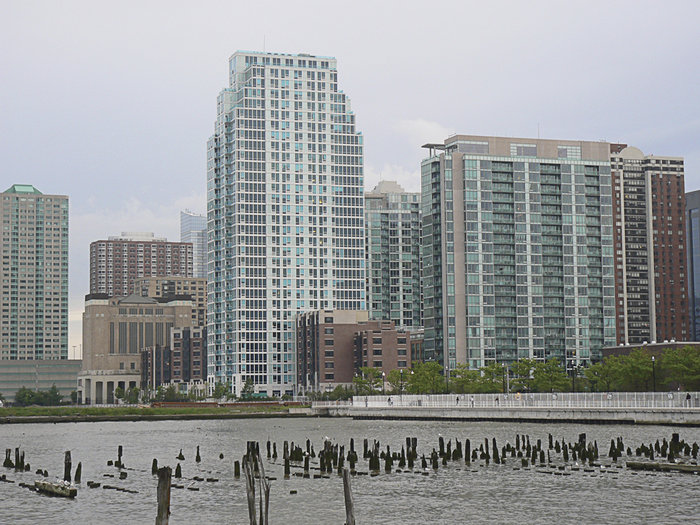While commercial real estate owners and the owners of non-abated residential properties have voiced their opinions and concerns about the revaluation currently going on, one group – the owners of tax-abated condo units – has largely been on the sidelines. What, if anything, does the ongoing reval mean for abated property owners?
The reval, which began last fall, is the city’s first since 1988 and will continue through the end of this year. Most of the city’s tax-abated properties weren’t built until after the last revaluation, so for many owners of these units the current reval will be the first they’ve ever experienced.
The city has for decades used “payments in lieu of taxes” (PILOTs), otherwise known as tax abatement agreements, to entice developers to build in neighborhoods in need of urban renewal.
The possibility that the reval could lead to higher tax bills for the owners of older properties only further angers homeowners.
____________
Originally, abatements were used to lure developers to high-crime areas and blighted sections of the city that had been abandoned by business and commerce. But Jersey City also granted abatements to many luxury waterfront developments well into the 1990s and 2000s, a debatable policy made even more controversial by the reval.
In the case of condo units that were sold on the open market, these tax exemptions were passed along to individual property owners.
The current property revaluation has angered some residential property owners who believe they are already paying their fair share of taxes to the city, school district, and Hudson County while owners in abated properties pay less than their fair share. The possibility that the property reassessment that will follow the reval could lead to higher tax bills for the owners of older properties only further angers these homeowners.
Skin in the game?
So, how will the reval affect abated properties?
In a “reval,” a city reassesses all of its taxable properties so that they are paying taxes on the current market value of the property. Because some properties (particularly older ones) are paying based on property values from more than two decades ago, they are paying a smaller share of the tax burden, whereas newer properties with a more recent assessment may be paying more. A reval is supposed to equalize the tax burden. At present, property owners in Jersey City are paying taxes that are based on about 31.3 percent of their home’s true value.
“All of the [taxable] properties in the city will be inspected by the reval firm and will be assessed by the city,” said Jersey City Tax Assessor Ed Toloza.
The city has approximately 54,243 taxable properties. Of those, the precise number of tax- abated properties isn’t clear, and queries to the city for those figures were not forthcoming by press time.
“An abatement has nothing to do with the market value of a property,” Toloza explained. “But it could still impact just how much those owners will be paying in the future.”
There are many properties, both commercial and residential, that have PILOT agreements with the city and these agreements can be for varying lengths of time. Some PILOT agreements are for five years, while others are for as many as 30 or 40 years.
For example, the City Council has recently approved several five-year tax abatement deals for a few senior and affordable housing developments. Toloza explained that in these cases property owners pay a percentage of the full tax rate that increases over time.
In the first year of the agreement the owner might not pay anything. In the second year of the agreement the owner will pay at least 20 percent of the tax rate. In the third year of the agreement the payment rate jumps to at least 40 percent, followed by 80 percent in the fourth year. In the final year of the agreement the property owner pays the full tax rate.
These agreements wouldn’t be affected by the revaluation, nor would long-term agreements granted to other developments, according to one real estate attorney.
“If a property is paying a [PILOT] under a long-term tax exemption agreement, then the underlying assessment – which will change under the revaluation – won’t affect their annual payment, because their annual payment is pursuant to a financial agreement with the city,” said A. Paul Genato, a real estate attorney who specializes in tax appeals and works with commercial property owners in Jersey City.
Where a PILOT agreement could be affected, Genato said, “is in cases where the new revaluation number comes in and the taxes you would otherwise be paying are much lower than the financial agreement.” In such cases, he added, the agreement usually includes a provision that allows the property owner to terminate the financial agreement.
E-mail E. Assata Wright at awright@hudsonreporter.com.
